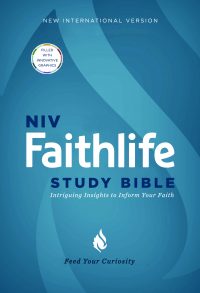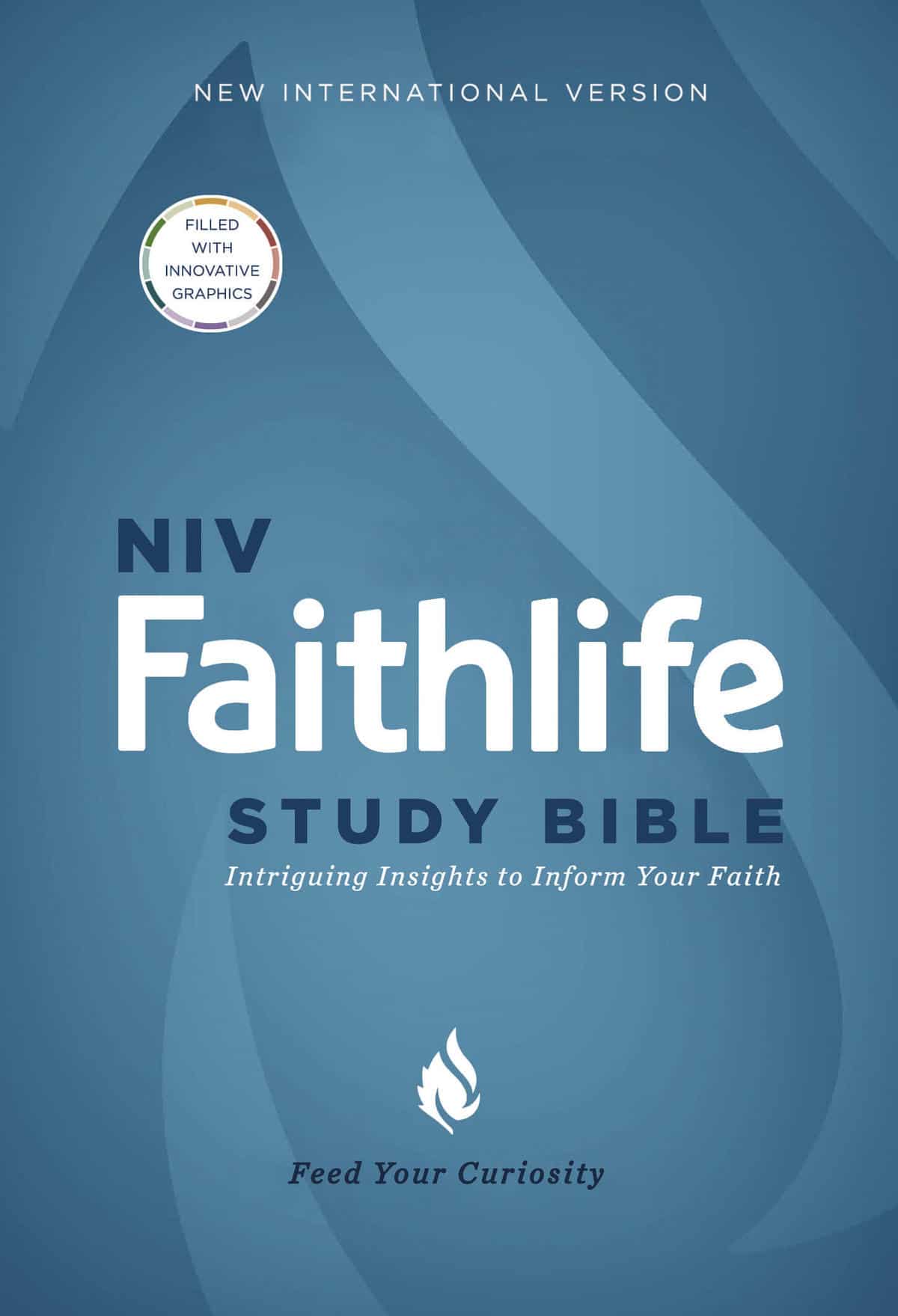When you see the Bible in its ancient context, it comes to life as a body of literature that shaped God’s people. These are the people who were known first as the sons of Jacob, the people of Israel, and later as the Jewish people, and from them came Jesus and the Christian tradition. This is the true story of the whole world, of every person, and of our deep need for relationship with the God who made the universe. This is the story of how God sought to know us and love us—by sending His Son to die and rise for us, so that we may truly live.
Faithlife Study Bible (FSB) invites you to find your place in this story by understanding the Bible more fully—and to feed your curiosity about God and His work in the world.

Vision
Faithlife Study Bible helps remove the obstacles to understanding the Bible, so people with any level of knowledge and experience can pursue an enriching study of Scripture. We encourage you to read a passage, then read the study notes, and then go back to the passage. Our ultimate goal is to help you engage with God’s Word—and with God Himself.
Faithlife Study Bible bridges contextual gaps. FSB is your guide to the ancient world of the Old and New Testaments. For each biblical passage, we have curated the most relevant data to illuminate the biblical text, from archaeological findings to manuscript research. Historical, cultural, and linguistic details help you understand the background of the Bible so you can interpret its significance. Study notes, media, and articles connect the dots from Genesis to Revelation, revealing how the story of God unfolds across different books and eras. FSB also looks at the Bible as a work of literature, explaining how different genres, narrative structures, and literary devices shape the text.
The notes provide explanations of the Hebrew, Aramaic, and Greek text of the Bible, but they’re written for people who don’t know those languages. Unlike other study Bibles, FSB was developed on the basis of the original languages of the Bible. Utilizing the technology and data behind Logos Bible Software, we were able to create a study Bible that works with multiple English translations. We call this translation independence. For example, the insights you’ll receive from FSB in the New International Version will be just as relevant for a study partner who uses the New King James Version.
Faithlife Study Bible unites scholarship and discipleship. The notes and articles draw from a wide range of academic research to illuminate the Bible, its world, and its message. While this certainly is a scholastic effort, it is foremost an endeavor of faith. FSB stands in the Christian tradition summarized by the ancient Apostles’ Creed and Nicene Creed. It is committed both to the authority of Scripture and to the challenge of wrestling with its full meaning.
Faithlife Study Bible invites you to be an interpreter. The study notes explain the biblical text while recognizing that God’s truth often reflects His mysterious ways and requires guidance from His Spirit. When tradition and scholarship presents diverging views on a passage, FSB explains the interpretive options, so you can reach your own conclusions. Rather than tell you what to think, the notes in FSB help you learn how to think about a text and work toward a deeper understanding.
Creating Faithlife Study Bible
We began in 2011 with a desire to design a study Bible for the digital age. The following year, we launched the initial project on multiple platforms—mobile, web, and desktop (available at FaithlifeBible.com). From the beginning, we were committed to expanding and revising the study Bible in an effort to continually improve it. FSB eventually would involve dozens of contributors and build on the insights of two of our other resources: Lexham Bible Dictionary and DIY Bible Study. Nearly every note in FSB has been expanded and reshaped by multiple people—those listed on the title page as editors or major contributors. As a result of this rich collaboration, FSB’s study notes have no single author.
The editors designed FSB to explore questions they had about the text, without regard to constraints of space. The digital content often runs much longer than what can fit on the page of a typical study Bible. These lengthy explorations provided an abundance of material for later editors to distill complex discussions into concise notes and articles for the print edition of FSB, which we are pleased to publish in partnership with Zondervan.
Our Hope for You
Understanding a verse or passage in its historical context leads naturally to applying God’s Word in our lives. When we see just how amazing the God of history is, we realize how much we want to love and serve that God. We hope and pray that every reader of FSB chooses to trust in the God revealed in the resurrected Savior, Jesus. And if you already know Him, we pray that you will be drawn into a closer relationship with Him.
Commit to Bible study. Feed your curiosity. Savor. Believe. And be transformed.
With much love for Christ and His work in all of us,
John D. Barry, General Editor
On behalf of the Faithlife Study Bible team
Spring 2016, Bellingham, WA





